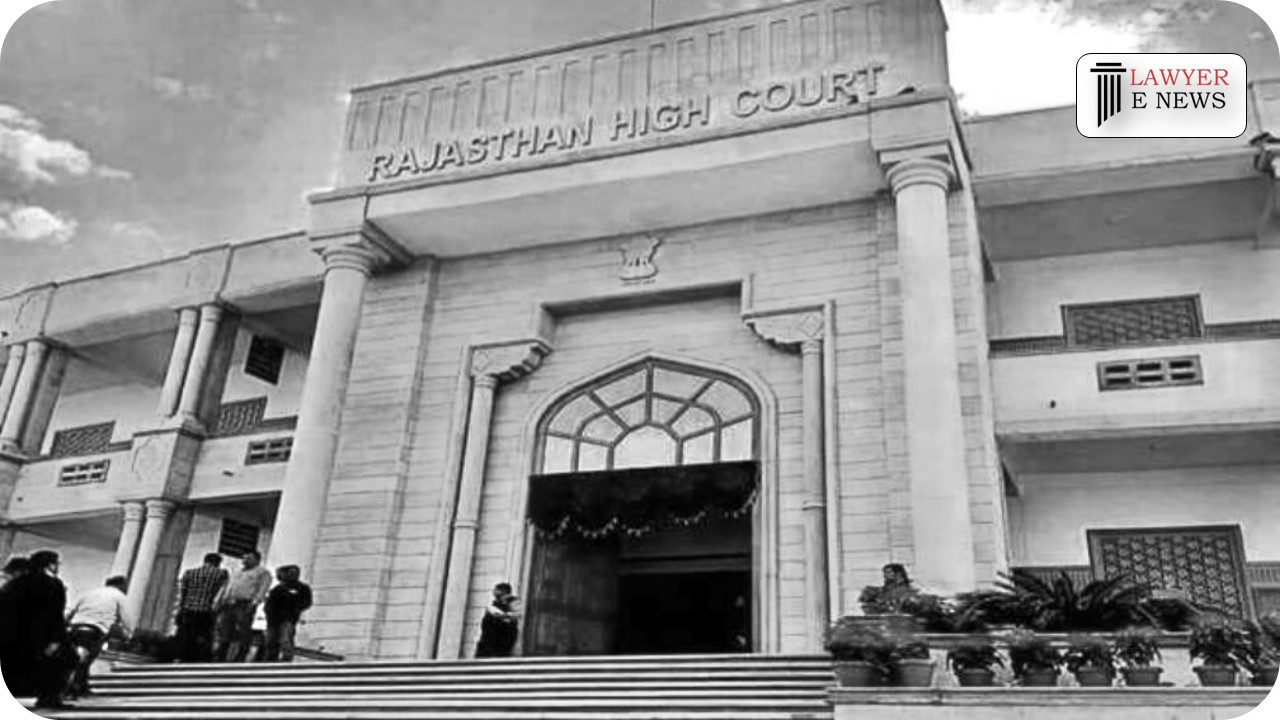-
by Admin
15 February 2026 5:35 AM



High Court's decision emphasizes prolonged custody as a ground for bail, aligning with Supreme Court precedents on Article 21 rights.
The Rajasthan High Court has granted bail to Jagdish @ Jambaram, an accused in a narcotics case, citing prolonged custody and ongoing trial delays. The court's decision, delivered by Justice Kuldeep Mathur, references the bail granted to a co-accused and highlights the constitutional rights under Article 21, even within the stringent framework of the NDPS Act.
Background of the Case
Jagdish @ Jambaram was arrested in connection with FIR No. 19/2021 registered at Police Station Pachpadara, District Barmer, for offences under Sections 353, 307 of the IPC, Section 8/15 of the NDPS Act, and Section 3/25 of the Arms Act. The petitioner has been in judicial custody since January 21, 2021, and has sought bail on the grounds of parity with a co-accused who had already been granted bail.
Court Observations and Views
Prolonged Custody and Article 21: The court underscored the significance of prolonged incarceration when granting bail under the NDPS Act, which typically imposes strict conditions. "The petitioner has so far suffered incarceration of more than 3 years," Justice Mathur noted, aligning with Supreme Court judgments that advocate for the fundamental right to a speedy trial. The judgment drew heavily on precedents set by the Supreme Court, such as Union of India vs. K.A. Najeeb and Mohd Muslim @ Hussain vs. State (NCT of Delhi).
The court reiterated that "the presence of statutory restrictions like Section 37 of the NDPS Act per se does not oust the ability of the constitutional courts to grant bail on grounds of violation of Part – III of the Constitution."
Grounds of Parity: A significant factor in granting bail was the similarity of Jagdish's case with that of co-accused Karna Ram, who had already been released on bail. The court found "the case of the present petitioner is not distinguishable from that of the co-accused person," thus extending the same bail considerations.
Judicial Precedents: Justice Mathur articulated that while Section 37 of the NDPS Act sets high thresholds for bail, exceptions exist, especially in light of prolonged custody and trial delays. "Looking to the prolonged custody of the petitioner it would not be appropriate to invoke the rigor envisaged under Section 37 of NDPS Act," the judgment stated, balancing statutory restrictions with constitutional guarantees.
Legal Reasoning
The judgment extensively discussed the principles of evaluating bail applications in cases involving the NDPS Act. It drew upon several Supreme Court rulings that underscore the importance of not infringing on the fundamental rights guaranteed under the Constitution. The court highlighted that prolonged incarceration without a speedy trial violates Article 21, which guarantees the right to life and personal liberty.
Quotes from the Judgment: Justice Mathur emphasized, "Prolonged incarceration generally militates against the most precious fundamental right guaranteed under Article 21 of the Constitution and in such a situation, the conditional liberty must override the statutory embargo created under Section 37(1)(b)(ii) of the NDPS Act."
Conclusion
The Rajasthan High Court's decision to grant bail in this NDPS case highlights the judiciary's commitment to upholding constitutional rights, even within the confines of stringent laws. This judgment is expected to influence future cases where prolonged pre-trial detention is a factor, reinforcing the balance between statutory restrictions and fundamental rights.
Date of Decision: May 30, 2024
Jagdish @ Jambaram vs. State Of Rajasthan
